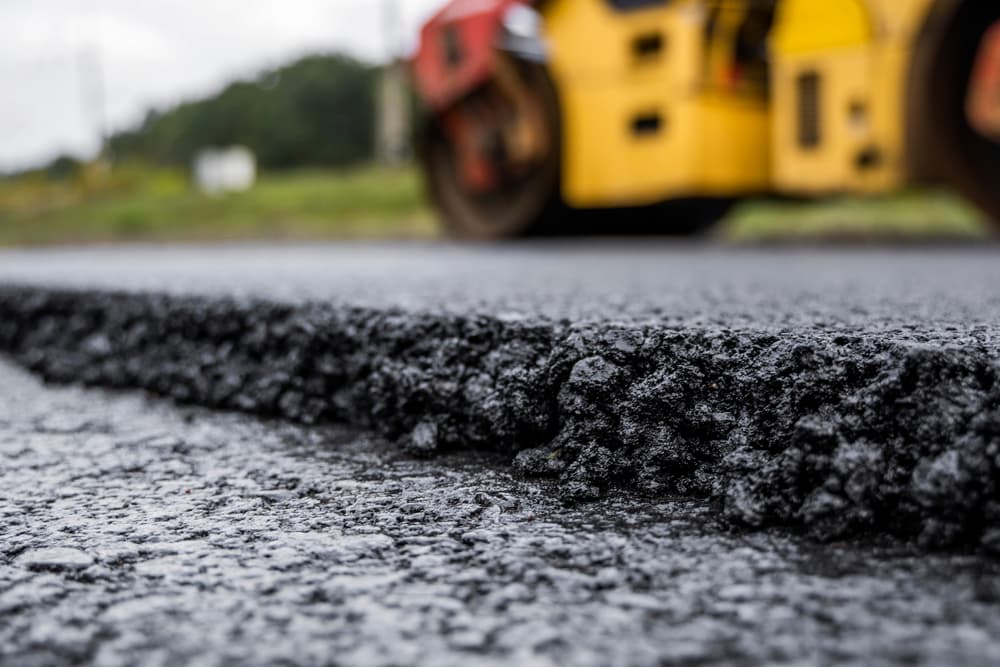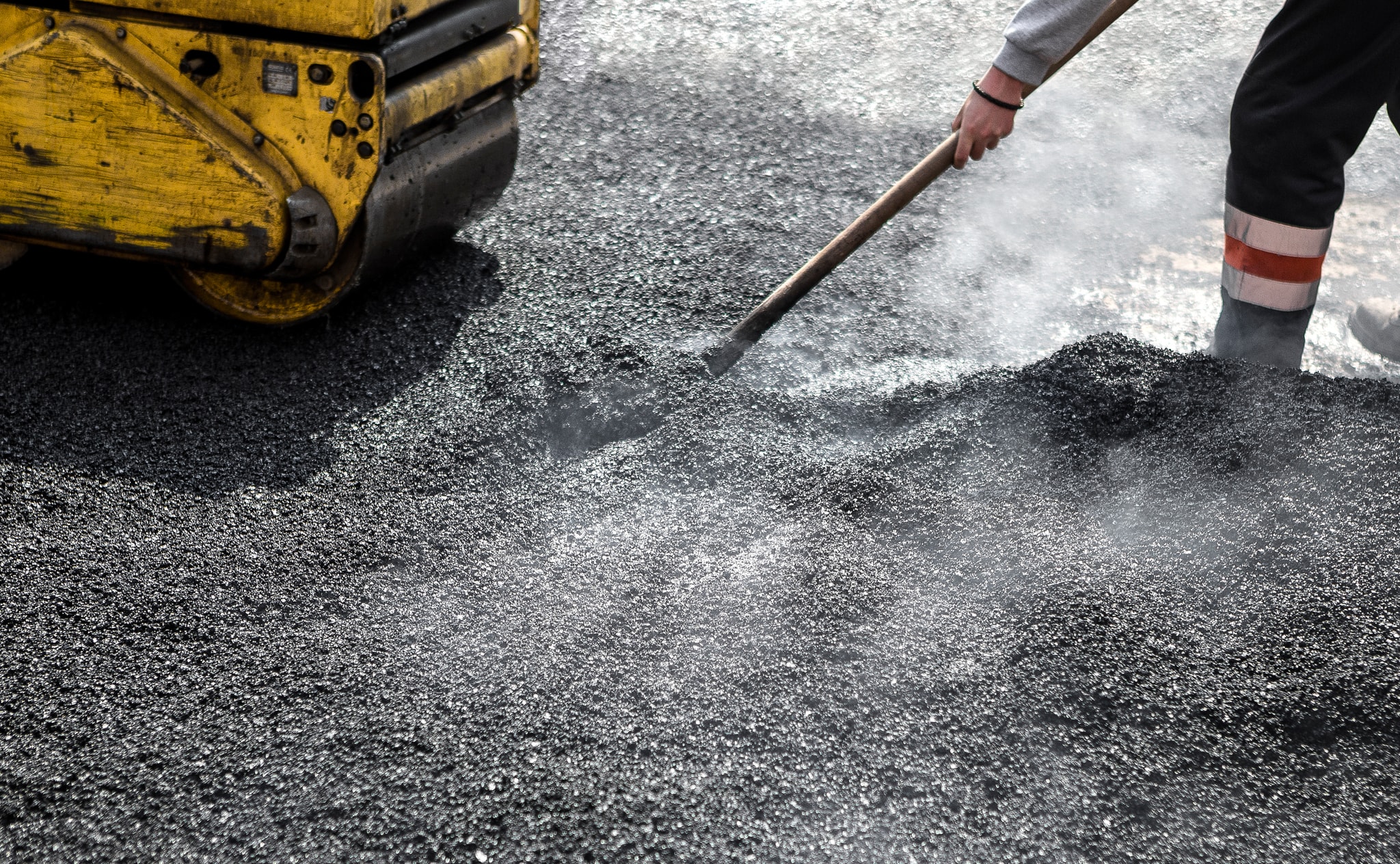Discovering the Environmental Advantages of Warm Mix Asphalt
The utilization of Hot Mix Asphalt in infrastructure jobs provides a compelling instance for sustainable advancement and environmental stewardship. By diving into the complex details of its manufacturing procedures and the cutting-edge use of recycled materials, a much deeper understanding arises of exactly how this innovation exceeds plain surface area applications. The environmental advantages of Hot Mix Asphalt extend far beyond first perceptions, using a nuanced perspective on how this product can lead the way for a greener future.

Reduced Greenhouse Gas Emissions
Hot Mix Asphalt production uses a substantial reduction in greenhouse gas emissions compared to various other pavement materials. The production procedure of Warm Mix Asphalt entails warming the combination of accumulation and asphalt binder to high temperatures. This process needs much less energy compared to the manufacturing of alternative pavement products, causing lower greenhouse gas discharges. Additionally, using recycled products in Hot Mix Asphalt even more adds to lowering its environmental impact. By integrating redeemed asphalt sidewalk and recycled asphalt roof shingles right into the mix, the requirement for virgin materials is minimized, bring about energy savings and reduced exhausts connected with extraction and processing.
Researches have actually shown that Warm Mix Asphalt sidewalks have a smaller sized carbon footprint over their life cycle compared to various other pavement choices. The durability and recyclability of Warm Mix Asphalt further improve its environmental advantages by decreasing the need for regular maintenance or replacement, consequently preserving resources and lessening discharges linked with restoration activities.
Energy Effectiveness and Preservation
The manufacturing process of Warm Mix Asphalt not only reduces greenhouse gas exhausts however additionally adds significantly to power efficiency and conservation efforts. Energy effectiveness is a crucial advantage of Warm Mix Asphalt manufacturing contrasted to other pavement types. The procedure involves heating up the materials at high temperatures to develop the asphalt mix, which calls for much less power than different approaches. Furthermore, the capability to reuse and reuse asphalt sidewalk further enhances power preservation. By including redeemed asphalt sidewalk (RAP) into brand-new blends, the sector conserves energy that would have been required to produce completely brand-new materials. The durability of Hot Mix Asphalt decreases the frequency of maintenance and reconstruction, leading to long-term power cost savings. This durability reduces the energy-intensive processes involved in constant repair services and replacements. On The Whole, Warm Mix Asphalt sticks out as an eco-friendly alternative that prioritizes power performance and preservation throughout its lifecycle.
Sustainable Pavement Solutions

One secret aspect of sustainable pavement services is using recycled materials such as reclaimed asphalt sidewalk (RAP) and recycled asphalt tiles (RAS) By integrating these materials into the asphalt mixtures, the demand for virgin sources is minimized, resulting in reduced power usage and greenhouse gas discharges during manufacturing. Furthermore, the reuse of these products aids divert waste from landfills, adding to an extra circular and sustainable economic climate.
Furthermore, lasting pavement services concentrate on optimizing sidewalk layout to improve performance and long life. Techniques such as warm mix asphalt (WMA) and stone mastic asphalt (SMA) enhance the sturdiness and durability of sidewalks, lowering the requirement for frequent repair services and substitutes. By applying these cutting-edge techniques, infrastructure designers can produce pavements that not just meet high-performance requirements yet also reduce their ecological footprint.
Minimized Environmental Effect
With a concentrate on sustainability and eco-conscious practices, sidewalk options are designed to lessen the ecological influence of construction and maintenance procedures. Warm mix asphalt, in specific, supplies numerous benefits that add to lowering the total ecological footprint of roadway framework. One vital facet is the recyclability of asphalt, which can be reused multiple times without endangering its quality. This characteristic aids in saving all-natural sources and lowering the quantity of waste sent to land fills.
Additionally, the production of hot mix asphalt produces lower degrees of greenhouse gases compared to various other pavement materials, making it a much more eco-friendly alternative. The power effectiveness of asphalt plants has also improved throughout the years, causing lowered fuel consumption and reduced emissions. Additionally, the smooth surface area of hot mix asphalt reduces rolling resistance for automobiles, leading to reduced fuel intake and reduced air pollution from automobile discharges.
Contribution to Environment Modification Mitigation
Warm mix asphalt plays a vital duty in mitigating climate adjustment with its lasting properties and lowered ecological influence. One significant contribution to environment modification mitigation comes from the site link energy effectiveness of hot mix asphalt production. Compared to other pavement alternatives, the manufacturing process for hot mix asphalt eats less power and releases reduced levels of greenhouse gases, hence minimizing its general carbon impact.
Additionally, warm mix asphalt's capability to mirror sunlight, referred to as albedo, helps in reducing city heat island effects. By minimizing warmth absorption and retention, warm mix asphalt pavements can reduce the need for cooling in city locations, as a result lowering greenhouse gas discharges related to energy intake for cooling functions.
In addition, the durability and recyclability of warm mix asphalt better boost its climate modification reduction capacities. Regrading. The long life-span of asphalt sidewalks reduces the demand for frequent repairs or substitutes, ultimately reducing the carbon discharges linked to road upkeep tasks. In addition, the recyclability of asphalt products lessens the need for virgin resources and decreases the environmental influence of sidewalk construction, straightening with sustainable methods for environment change reduction.
Verdict
Finally, the ecological advantages of Warm Mix Asphalt demonstrate its substantial contribution to reducing greenhouse gas emissions, conserving power, and minimizing environmental impact. This lasting pavement service aligns with climate modification reduction efforts, advertises resource preservation, and enhances framework development. By utilizing recycled products, energy-efficient manufacturing processes, and long lasting design, Hot Mix Asphalt plays an essential duty in promoting a much more eco-friendly strategy to facilities building.
The manufacturing procedure of Warm Mix Asphalt includes heating up the mix of aggregate and asphalt binder to high temperature levels. By incorporating redeemed asphalt pavement and recycled asphalt shingles right into the mix, the requirement for virgin products is decreased, leading to power savings and reduced emissions connected with extraction and handling.
One key element of lasting sidewalk services is the use of recycled materials Check This Out such as recovered asphalt pavement (RAP) and recycled asphalt tiles (RAS) Strategies such as warm mix asphalt (WMA) and rock mastic asphalt (SMA) boost the toughness and strength why not try these out of sidewalks, lowering the demand for frequent repairs and replacements. Compared to other sidewalk alternatives, the manufacturing procedure for warm mix asphalt eats much less energy and produces lower levels of greenhouse gases, hence reducing its overall carbon impact.